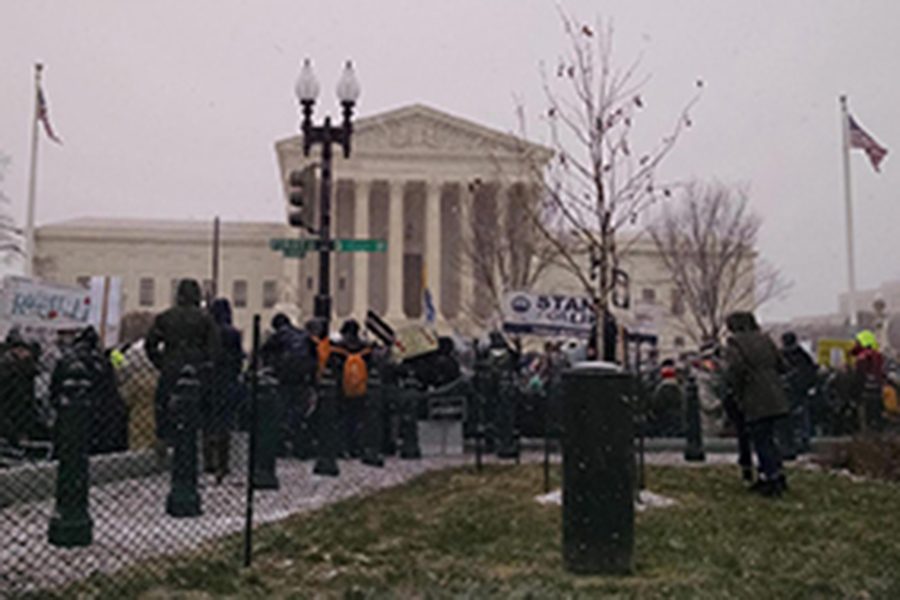Theology teacher, five students to attend annual March for Life
Event to protest Roe v. Wade set for Jan. 27 in Washington
Two groups of protesters stand face to face, one angry that the police had to get involved, the other silent, peacefully going around the first doing nothing to incite them. This is one of the many March for Life events theology teacher Mr. Quanah Jefferies has experienced.
According to Jefferies, the first time he went on the march, the annual event that protests the 1973 Roe v. Wade Supreme Court decision that legalized abortion, he was in graduate school. He said that he was affected by the diversity of the people present at the march. Participants came together from all backgrounds, many carrying their banners written in their native languages.
Jefferies’ experiences at previous marches may mirror those of the five students who will attend this year’s march as part of an official school trip. One such student is junior Austin Gaither.
According to Gaither, he said that he is going because he disagrees with the practice of abortion. “I believe people deserve to live,” Gaither said.
The Jan. 27 march will be the first one that President-elect Donald J. Trump will witness during his term in office, and in that role finds himself in the position of appointing at least one justice to the Supreme Court. According to social studies teacher Ms. Jill Baisinger, Trump has expressed his desire for Roe v. Wade to be reviewed. “President Trump has articulated in news conferences since he has been elected that right to life is an issue that he would like to be ruled on differently that it has been in the past precedents of court cases,” Baisinger said.
Marchers no doubt will be aware of this fact during this year’s event.
According to Jefferies, each year one aspect of the march touches those who choose to attend. “(This) is something that people aren’t told about,” Jefferies said when describing the march’s most striking part.
Though the part may be a mystery, it is no mystery that the Supreme Court vacancy could drastically affect the future of Roe v. Wade, the court case that legalized abortion.
According to Baisinger, she said that Trump’s appointment to the court could have lasting consequences if an abortion rights case was to come before the court.
If the justice that Trump puts on the court is a conservative, that could very well be a deciding vote to overturn the Roe v. Wade decision,” Baisinger said.
Marchers may have this in their minds while they demonstrate outside the Supreme Court.
Though this is important it’s also good for students should avoid having expectations for the march. “Don’t go with any preconceptions. It’s not like anything you have experienced,” Jefferies said.
According to Gaither, he said this will be his first year marching in Washington. Gaither wants to fully appreciate this new experience. “I want to learn some life lessons,” he said.
Something Gaither may experience is the chance to forge new relationships.
According to Jefferies, connecting with others is a big part of going on the march. The students ride to Washington with other students from the North Deanery, parishes located on the north side of Indianapolis. The time they have they interact with each other allowing them to form friendships. “Students tell me they’re still friends with people they met on the trip,”Jefferies said.
According to Jefferies, he said that his first experience at the March profoundly impacted his life. He said that before he began doing pro life work, abortion was just another issue.
The march’s power is exactly why Gaither anticipates the Jan. 27 event. He said, “(The march) shows (students) what pro-life is and how it affects the world.”







